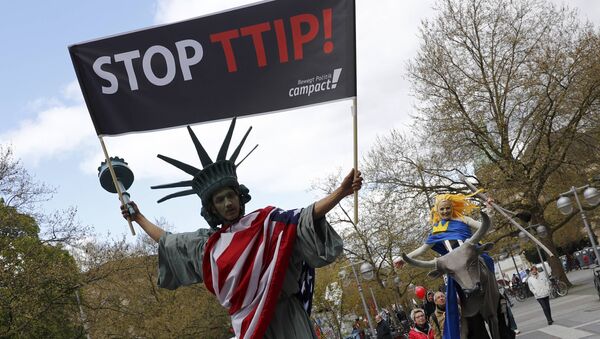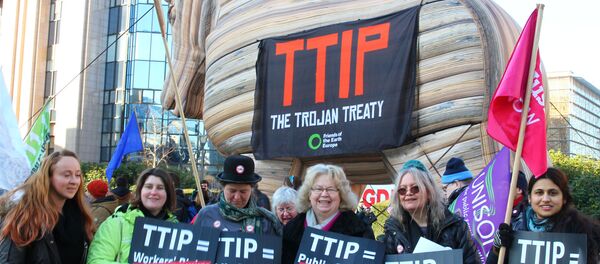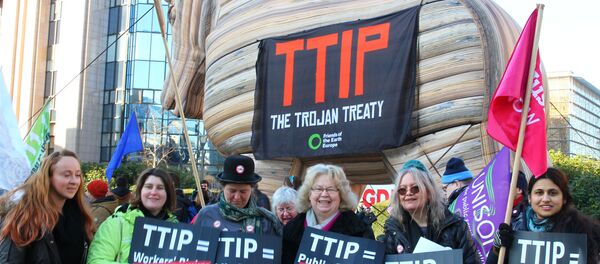Earlier this week, German Vice Chancellor Sigmar Gabriel and French Trade Minister Matthias Fekl blamed Washington for the failure of the TTIP talks.
In addition, the European Commission alleged that Apple had benefited for 20 years from illegal tax breaks in Ireland. Brussels concluded that the company should pay up to €13 billion in taxes.
Thus, Europe’s biggest economies are turning away from the ambitious deal with the US.
Meanwhile, the TTIP faced troubles back in 2015. Last October, the European Parliament said that two years after the talks started the "negotiators have shied away from addressing real substance or tackling difficult issues," the article read.
There are two additional factors that have had a negative impact on the deal. The first factor is the electoral cycle in the US and Europe.
“The governments of Germany, France and Italy changed their stance towards the TTIP due to public opinion in the countries ahead of elections,” Daniil Kirikov, managing partner at the Kirikov Group, told Vzglyad.
"When leaks about the document were published public support for the TTIP dropped from 50 to 15 percent. Thus, it had a negative effect on electoral ratings. Representatives of the ruling parties realized that if they supported the deal they wouldn’t win elections," Kirikov explained.
"At one stroke, this [Brexit] turned the talks upside down by removing from the equation the EU’s largest, most consistent supporter of a much expanded transatlantic economic relationship," the article read.
But the potential failure of TTIP is only part of souring ties between Washington and Brussels. Officials and politicians on both sides of the Atlantic have accused each other of protectionism and populism. In addition, many in Europe are complaining that the EU suffers from Western sanctions against Russia, according to the article.
"Unless the US and Europe find mutually acceptable solutions to these and similar problems, more will be at stake than trade, investment and jobs. Ultimately, the accumulating transatlantic disunity will threaten the liberal, post-second world war global order on which the West’s prosperity and security have rested so heavily," the article read.
The TTIP deal has been one of the most ambitious US foreign policy projects during Barack Obama’s presidency. Now, the US and EU may not agree on the deal before the end of 2016.
The European Commission has been in talks over TTIP with the US by a mandate issued by the EU Council.
"In order to halt the talks, France has to initiate the cancellation of the mandate in the Council. The decision must be approved by at least 55 percent of the Council members who represent at least 14 EU countries with 65 percent of the EU population. In addition, only four or less country members can vote against," Kirikov explained.
According to the expert, if Germany, France and Italy reach a consensus against TTIP this could almost guarantee that the talks will be stopped.
"In order to continue the talks, the US could pressure certain countries, especially in Eastern Europe, like Poland, Latvia and Estonia. If Washington persuades at least five EU countries to support the deal the vote will fail," Kirikov said.
Statements by European politicians make clear that the deal proposed by the US will not be beneficial for Europe.
"Now it is clear that the TTIP will not become real in the near future. At least, the establishment of a common US-European market will be delayed. At the same time, movements for national sovereignty and protectionism are on the rise on both sides of the Atlantic. TTIP may not get a second chance. This means a big problem in Washington’s globalization plans," an article in Vzglyad read.





